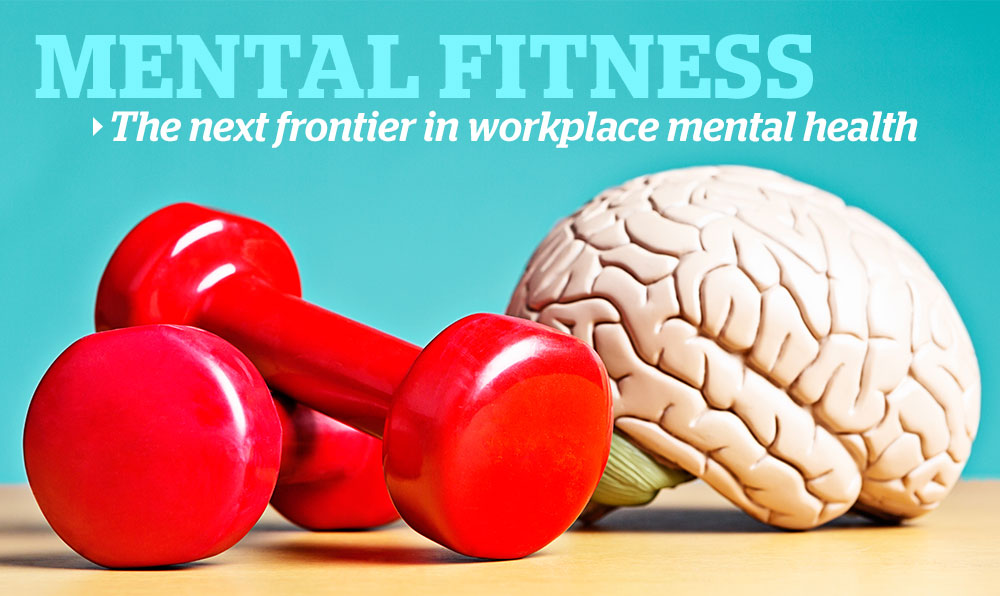

Columns/Blogs
Features
Mental Health
How to move your mental health from languishing to flourishing
By Bill Howatt

EDITOR’S NOTE: ‘Mental Fitness: The next frontier in workplace mental health’ is a weekly series, in partnership with Dr. Bill Howatt of Howatt HR Consulting in Ottawa. This series takes a deeper look at mental fitness — an approach to prevent mental harm and promote mental health.
Deciding that you want to have good mental health is a wonderful decision.
However, moving from languishing to flourishing is a process and not as simple as flipping a light switch.
When a person decides to improve their mental health, they may be starting from a mental state known as languishing. Much like physical health, if you were to observe the next 100 people who joined your local gym, you would note they fall on a range from low physical fitness to high. This is the same with mental fitness.
A person who is languishing is experiencing more unpleasant emotions and negative thoughts than if they were flourishing. Think of flourishing as a positive mindset and languishing as a negative mindset. Languishing can be defined as apathy, a sense of restlessness or feeling unsettled or unable to enjoy the things that typically bring you joy.
The languishing wake refers to how languishing may unintentionally push some people away who do not understand mental health.
In The Cure for Loneliness, I introduce authentic relationships as being ones with unconditional acceptance. The reality is many personal and professional relationships are not authentic. As a result, they are more at risk of judgment and lack of empathy in persons who do not look or act the same.
Any person experiencing languishing will benefit from having authentic supports as they make their journey to flourishing. However, it is also beneficial for them to be aware of how languishing may be perceived as a negative stimulus by workmates, peers, family members, and even partners.
This microskill explores the languishing wake. As much as we like to think society is making progress in the mental health conversation, we have a long way to go.
I live with a mental illness and have experienced the languishing wake more than once, so I know firsthand how isolating it can be.
There is still a lack of context for what a person with a mental illness is experiencing or even one who is languishing who does not have a mental illness.
Why? It can be due to stigma linked to discrimination, implicit bias and prejudices. When a person who is languishing perceives any level of stigma, they may go into self-protection mode and move away from people, which is not ultimately what they need.
People need people for good mental health.
Psychologically Safe Workplace Awards provide employers tools, data on mental health
Insights into the languishing wake
Human beings are hard-wired to avoid pain and move toward pleasure.
When languishing, a person’s resiliency to unpleasant emotions is often lower, making them more susceptible to being triggered by stressors. As well, in this state they are at higher risk of projecting unpleasant emotions and thoughts when interacting with another person.
Examples of a languishing wake:
- Person A, while experiencing unwanted stress, was in a negative mental state when interacting with Person B, who was in a more positive and secure mental state.
- Person B, at a subconscious or conscious level, felt negatively impacted by Person A’s unpleasant emotions and negative thinking.
- The consequence of the interaction for Person B is compensating behaviours (for example: avoiding, not motivated to check in, gets a bit nervous before interacting) when they think about or must interact with Person A.
Person B may be a caring individual and want to understand. However, if they find Person A difficult to interact with because of their emotional state, they may start judging them.
Tips for a person who is languishing
As much as it would be wonderful if everyone understood mental health and was tolerant, non-judgmental, and had empathy to consider that Person A is having a hard moment, we are not there yet.
Being open to knowing how we want to show up and being able to show up are different realities.
Mental fitness is a path that can help, but, like on any path, there will be bumps.
Self-compassion: Moving from languishing to flourishing takes time.
When you notice you have generated a languishing wake, be kind to yourself. A big dose of personal empathy is helpful to know that how you showed up is not what you want.
All change starts with awareness, which can help you notice when you improve.
Putting languishing behind you so you can proceed to flourishing requires taming fears and improving your emotional regulation (for example: not reacting to unpleasant emotions with negative words and actions).
Own your behaviour: It may be difficult at the moment to own your behaviour. However, regardless of how you feel, you are always accountable for it.
If you are not happy with an interaction or how you acted, it is helpful to apologize when you are settled, and your mind is relaxed.
Persons who care about you will appreciate the courage it takes to own your behaviour, especially when you are not feeling your best.
Mental fitness plan: Buy into the long game. It can take months of work to move from languishing to flourishing.
As frustrating as the process can be dealing with unpleasant emotions and negative thoughts, daily practice of mental fitness can help your emotional well-being and mental health.
The brain is a learning machine and will do what it is told. It takes time for it to unlearn old belief systems and learn new, positive ones.
It also takes time to learn how to regulate unpleasant emotions and initiate positive ones. To assist in getting you on track with building your mental fitness plan, review the following articles:
 Dr. Bill Howatt is the Ottawa-based president of Howatt HR Consulting.
Dr. Bill Howatt is the Ottawa-based president of Howatt HR Consulting.
If there is a particular microskill or topic you would like to see Dr. Howatt write on that supports employees’ mental health in the workplace, please send your request to Talent Canada editor Marcel Vander Wier.
Print this page